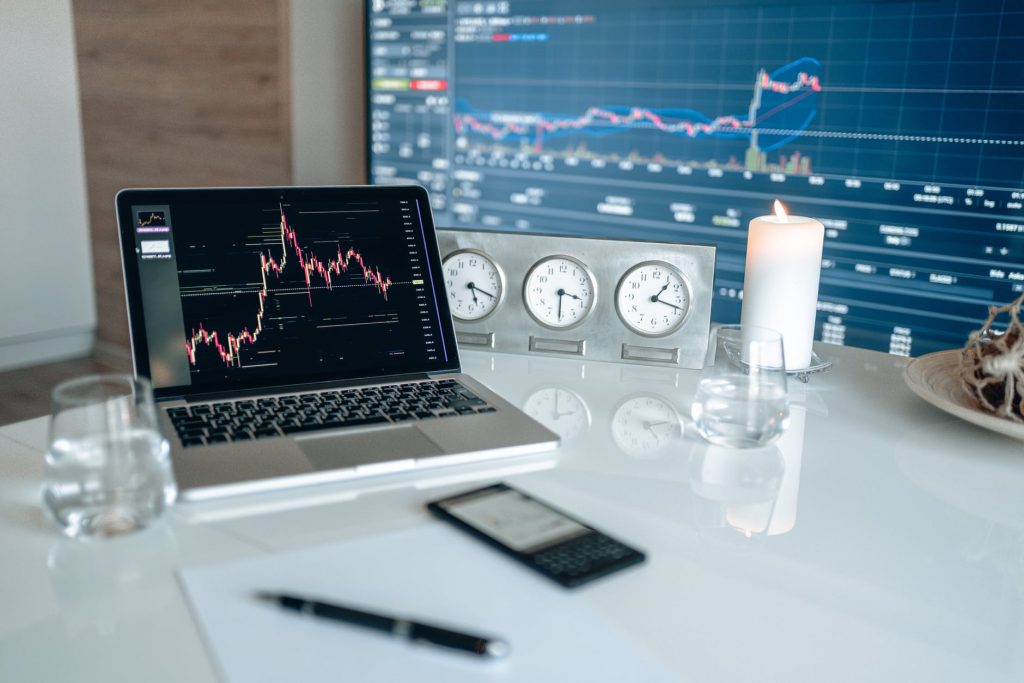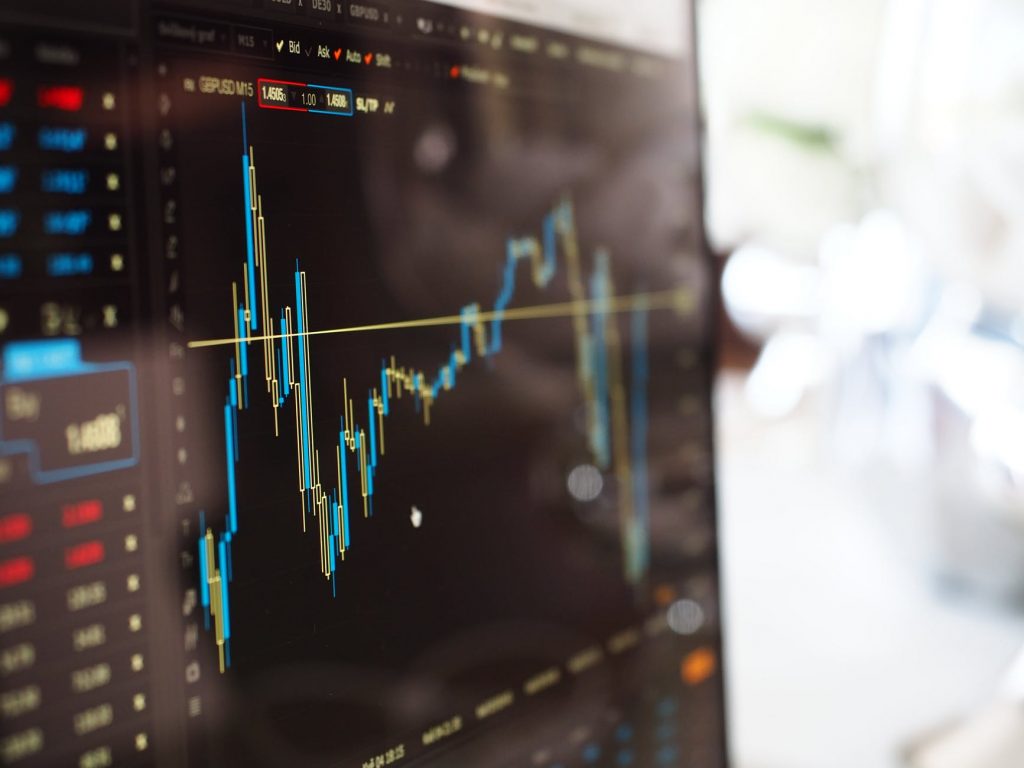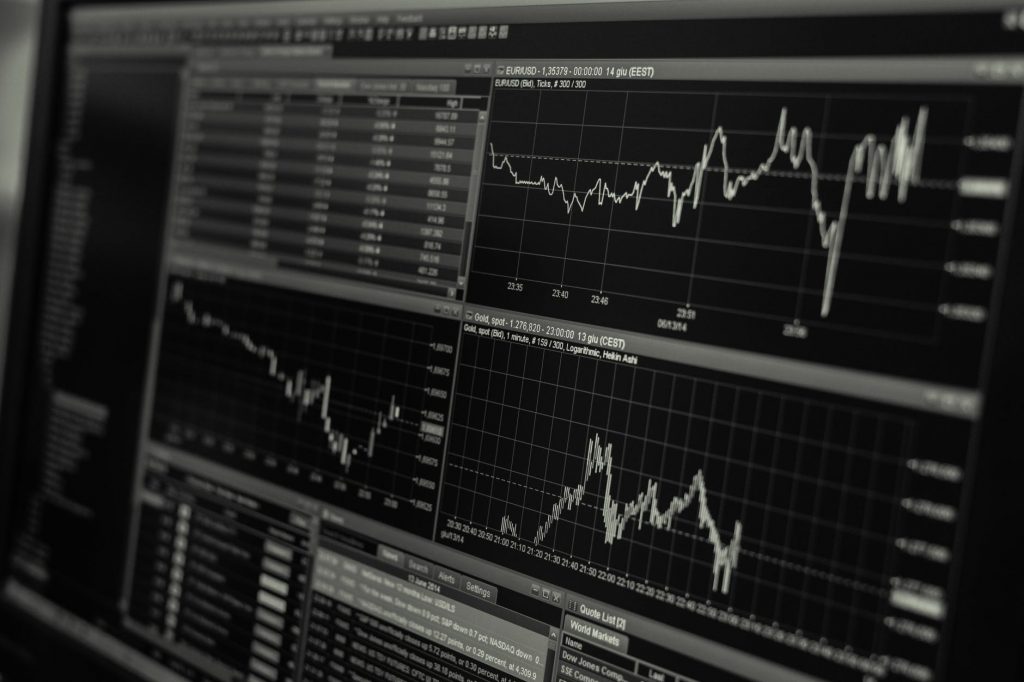Dark Pool Trading
Dark pool trading is a system that uses secret exchanges to keep trades out of the public eye until they have been fully executed. Though many people are suspicious about the lack of transparency associated with dark pools, they are regulated in many countries, including the UK, and can reap benefits for retail traders as well as professional investors.
In this article, we review the definition of dark pool trading, the benefits and drawbacks of using these private exchanges, and how you can begin dark pool trading.
Dark Pool Trading Explained
A dark pool system refers to a type of Alternative Trading System (ATS) that use private equity exchange venues. They allow traders to remain anonymous and keep their trading activity out of the public eye until the trade has been completed. It is therefore not possible to access dark pool trading data through regular charts and indicators.

The main advantage of using a dark pool in trading is the ability to find buyers and sellers without the trader revealing their position, which can lead to price devaluation before the trade is completed. For example, if news coverage showed that an investment bank was trying to sell a large number of Tesla shares, those shares would likely decrease in value before a buyer was found.
This is especially important nowadays, with trade scanners such as TD Ameritrade’s ‘Trade Flash’, and social media sites such as Twitter, which can rapidly spread information and influence prices. Dark pool trading has become all the more relevant since the 2021 GameStop saga, where retail investors knew of large hedge funds’ short positions and were able to use Reddit forums to encourage buying of shares, inflating their value.
Dark pool exchange venues were originally set up for the trading of equities, bonds and derivatives such as options and futures, but can also be applied in other markets including forex and cryptos such as Bitcoin.
High-Frequency Trading
The use of dark pools has expanded due to high-frequency trading. With today’s ability to carry out high-frequency automated trading using algorithmic bots and supercomputers, investors can capitalise on large orders by executing trades as soon as there is a slight price difference. Because of this, large orders have to be spread across multiple exchanges. Several investment banks set up private exchange systems in response to this, referred to as dark pools.

Types Of Dark Pools
The dark pool exchange venue can be arranged by brokers, stock exchanges or individual dark pool companies.
Broker-Dealer Dark Pools
Broker-dealer-owned dark pool platforms are set up by large broker-dealer companies, which are often investment banks. They buy and sell assets for their clients, deriving their prices from order flow, which is the balance of buyers and sellers. Examples of these dark pools include Goldman Sachs’ Sigma X and Morgan Stanley’s MS Pool.
Agency Broker and Exchange-owned Dark Pools
These dark pool companies act as agents rather than principals, which means they search for suitable counterparties for their clients in other brokerages. Prices are derived from exchanges, for example the midpoint of the National Best Bid and Offer (NBBO), meaning there is no price discovery.
Examples of agency broker dark pools include Liquidnet, which has an Asia-Pacific business offering dark pool trading in Malaysia, Hong Kong, Japan, Singapore and Australia. NYSE Euronext is an example of an exchange-owned dark pool.
Electronic Market Makers Dark Pools
Electronic market maker dark pools are offered by independent companies who operate as principals. This means customers’ trades are completed using their own register, allowing the broker to profit from the bid-ask spread. Transaction prices are not calculated from the NBBO, resulting in price discovery. Knight Capital Group is an example of an independent dark pool trader.
Pros Of Dark Pool Trading
The key benefit of dark pool trading is the ability to execute trades without market impact, as public knowledge may influence share price.
However, there are further advantages that come as a consequence of dark pool trading, including lower costs. Investors don’t need to pay exchange fees when dark pool trading and transactions are often based on the midpoint of the bid-ask spread, meaning both parties can benefit from improved prices.
Cons Of Dark Pool Trading
The lack of transparency associated with dark pools means that share prices may not reflect true value. The price of the stock could be about to collapse once the dark pool order has become public knowledge, meaning traders may unknowingly be paying for an overvalued stock.
Furthermore, front running, where traders buy or sell based on information about a future trade that has not been executed, is still possible within a dark pool. High-frequency trader predators may enter a dark pool with this motive, abusing the original purpose of the private exchange.
Dark Pools & Retail Trading
Although originally set up for big investors, dark pools now permit traders with smaller size orders to increase liquidity. In fact, a significant proportion of trades now occur using dark pools, with the average trade volume being only a couple of hundred shares.
However, as a retail trader, you likely won’t be trading with the volumes seen in block trading, meaning that the anonymity gained from dark pool trading is unlikely to be beneficial. Instead, dark pools have moved away from their original purpose, and are now being used to take advantage of better prices.

The biggest impact to the retail trader will be through the advantage gained by the large investors. Providing pricing advantages to pensions and mutual funds will ultimately affect retail investors who own these funds.
UK Dark Pool Trading Regulations
Contrary to common belief, dark pool trading is regulated in many countries, though specific regulations differ around the world. As the UK is no longer tied to the ESMA rules since its departure from the European Union, traders can capitalise on the use of dark pools to reduce their bottom line. The FCA has issued a paper stating that dark pool trading has been shown to significantly reduce execution costs.
How To Trade Dark Pools
Here, we introduce the essentials to consider if you want to start dark pool trading.
- Find a broker – this will either be a stock broker-dealer, specific dark pool company, or stock exchange owned dark pool. Check whether the broker is regulated and with which authority, to ensure your funds are protected. It’s also worth reading reviews of the trading platform and software offered.
- Choose a market – trading of securities and derivatives are the most popular in dark pools, though currency and blockchain trading is becoming more mainstream. Note, any specific trading hours for your market of interest.
- Select a strategy – will you carry out manual or algorithmic dark pool trading? YouTube channels such as maxrisktrading (MRC) can be great sources of dark pool trading strategies online. Books such as ‘Dark Pool Trading for Dummies’ and ‘The Stock Whisperer’ dark pool app also offer a wealth of information.
- Risk management – as with any trading strategy, it’s important to have risk management in place. This can include basic strategies such as never risking more than 1-2% of your capital on a single trade. Traders in dark pools should protect themselves from high-frequency traders in particular.
How To Spot Dark Pool Trading
Traders are often keen to try and monitor dark pools they don’t have access to, to take advantage of transactions that are kept secrets. Dark pool trading scanners and indicators aim to measure the level of trading conducted outside of stock exchanges. As dark pool trades are often based on the midpoint of the NBBO, there can be a separation in dark pool prices vs exchanges over time. Retail traders may try to capitalise on this using dark pool trading strategies, but should be warned – this is not an easy feat with the lack of transparency surrounding the investing activity.
Final Word On Dark Pool Trading
Dark pool trading is a system that has gained traction due to the ability to execute trades outside of public knowledge, at potentially better prices. Although originally designed for large volume traders, its popularity with retail traders has increased significantly post MiFID II, with average trade volumes of just a couple of hundred shares. However, the anonymity of dark pools doesn’t benefit the average retail trader and drawbacks such as potential price diversion from the market may outweigh the pros.
FAQ
Is Dark Pool Trading Illegal?
Despite popular belief, dark pool trading is legal and regulated in many countries, including the UK. It differs from insider trading, which uses non-public information to make trading decisions and is illegal in many countries.
How Does Dark Pool Trading Work?
Dark pool trading takes place on private exchanges so that trading activity remains out of the public eye. This prevents price devaluation before the trade is executed.
How Do I Access Dark Pool Trading?
Dark pool trading can be accessed via brokers such as Goldman Sachs’ Sigma X, stock exchanges such as Liquidnet, or individual dark pool companies such as Knight Capital Group.
What's Dark Pool Vs Light Pool Trading?
Light pool trading is the opposite of dark pool trading, using ‘lit pools’ that have a public order book. This means light pool traders can use the bid and offer information available in the order book to predict market trends.
What Is Dark Pool Trading Vs Shadow Banking?
Shadow banking is a term used to describe financial services that occur outside of regulations. Dark pools are often used in shadow banking because of their lack of transparency, though dark pools themselves are often regulated.